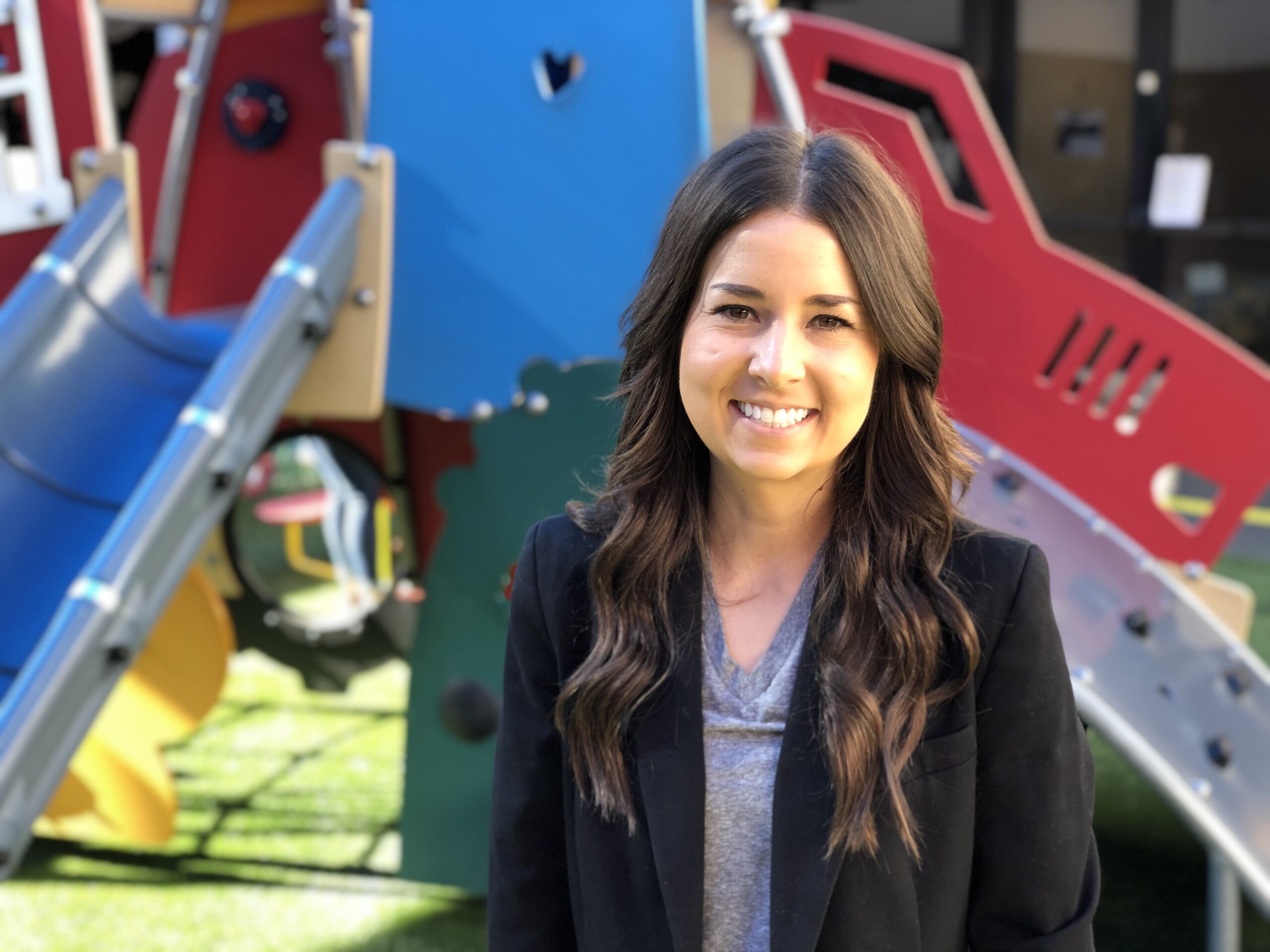“I love that my every day is different. Building a relationship with not only my clients but their entire families, being right in there with their day-to-day life and being that support that they need is my very favorite part of my job. I also really enjoy the aspect of leading a group of SARRC therapists towards a common goal—providing the best quality service possible to our clients and their families,” says Mandi Winters, M.Ed., BCBA.
Mandi, previously an elementary school teacher, joined Southwest Autism Research & Resource Center three and a half years ago as a Senior Behavior Therapist, later moving up to her current role as a Clinical Supervisor within the Comprehensive Behavioral Program.
We caught up with her for a peek into her typical day:
8 a.m.: Depending on my schedule and locations of meetings, I will either start the day working remotely or at the office. I catch up on email and voicemails for any last-minute notes from parents or important information I need to communicate with the rest of my team so that we’re on all on the same page for the rest of the day. During this time, I will also make any last-minute edits to the different client interventions and goals so that they are ready for the day.
9 a.m.: I am usually in my first supervision overlap, which is a chance for me to accompany our therapists during their client sessions. During the school year, this will take place at one of my clients’ schools, and if school is not in session then it will be in their home. During this time, I am shadowing the therapist who is there, coaching, providing feedback, and modeling any programs for them. This is one of my favorite parts of my day—seeing clients and therapists in action!
11 a.m.: I drive back to the office from the school or client’s home. During my time at the office, I will work on a client’s treatment plan to submit to their insurance company for authorization of services. I work on scoring their standardized assessments, updating graphs, reviewing their progress towards their goals, and writing a clinical recommendation based on that information.
Throughout my entire day, I’m consistently checking my phone and email for communication from parents or SARRC therapists. I am often answering questions from our therapists regarding client programming or their schedule and may also spend time talking to a parent brainstorming or collaborating about new goals. Also, during this time, I will start preparing for a one-on-one meeting with one of the therapists on my team.
1 p.m.: I’ll have a one-on-one meeting with one of the therapists on my team. During this time, we’ll go over their personal goals, their professional goals, address any concerns they have, and then to go into any questions about clients. We discuss program teaching instructions and procedures and will watch videos that they’ve taken during the week so that I can provide feedback on their delivery of programs with clients.
2 p.m.: Midafternoon is typically spent reviewing clients’ graphs and data to ensure they are continuing to make progress towards their goals. I may make changes to procedures or create new goals based on their progress and data. I double-check all clients’ schedules for the next day and also my own before I head off campus for the day.
3 p.m.: I head off-campus to either a meeting with a school, another Supervision Overlap, or a Parent Training session.
If it is a school meeting, we will meet as a whole team—me, the client’s parents, the teacher, and an administrator—and make sure that everyone is on the same page. We’re reviewing progress and collaborating and brainstorming ways we can better support the child in the school environment.
If it is a Parent Training session—these look different every day! The setting and the focus of the session is completely parent-led and we focus on whatever is of the most importance for the family at that time. This could be coaching them through homework or mealtime, helping to facilitate play between siblings, or even attending a doctor’s appointment. It’s providing feedback, modeling things, taking data on their implementation of interventions and brainstorming with them for different strategies that they can implement to make their day a little smoother.
6 p.m.: I check email and my phone one more time to make sure there’s nothing that’s super urgent that I need to take care of that night, and then I head home.
CAREERS AT SARRC
Whether you have experience, or you’re just getting started, explore the many different career opportunities at SARRC today! Learn more…

